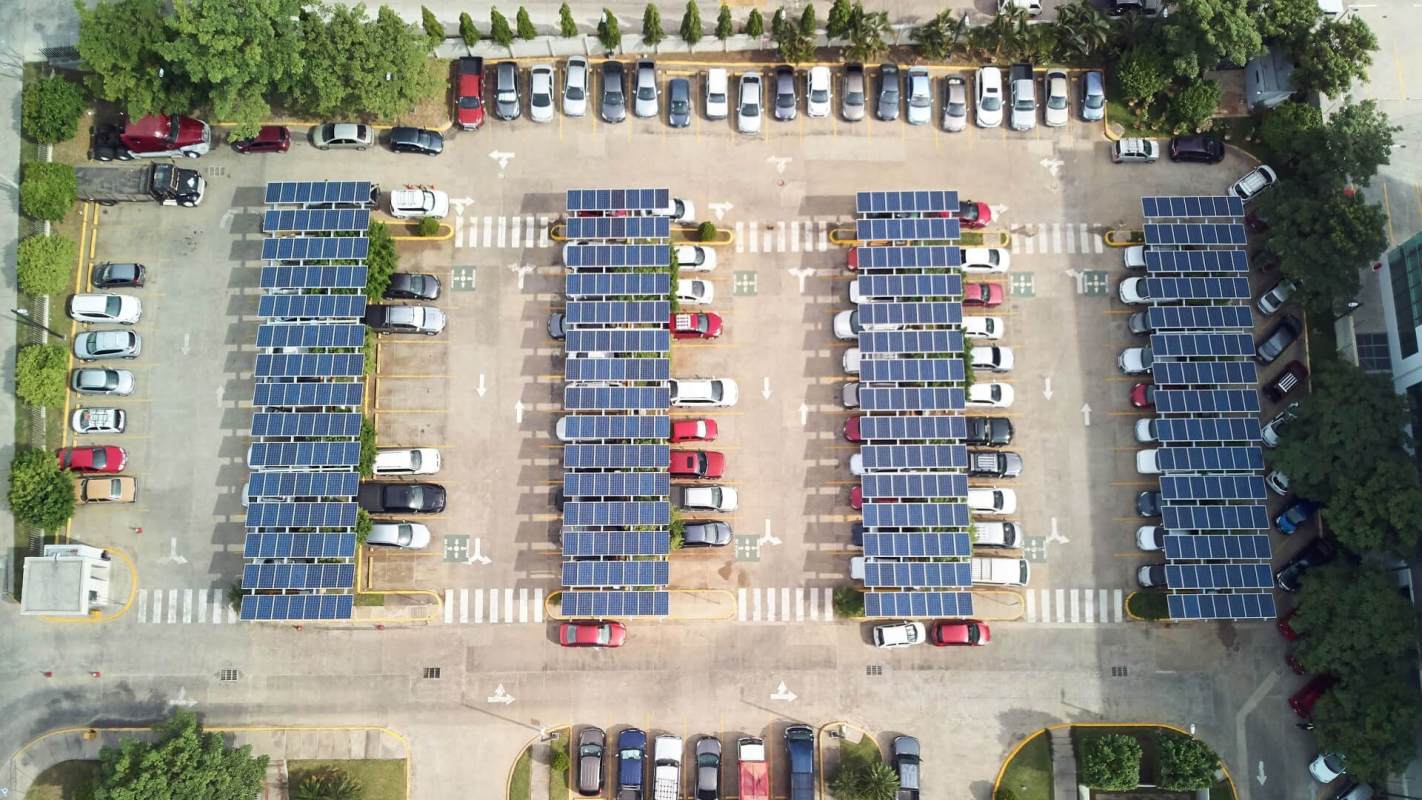Solar panels may soon be required in all large outdoor parking lots in France, thanks to a new law being debated in the French Parliament. Article 11 is part of a bill designed to speed up the adoption of more affordable energy technology throughout the country.
The article, which was approved by the French Senate on Nov. 4, requires every outdoor parking lot with more than 80 spaces to install "photovoltaic shades" — structures with solar panels covering at least half of the top surface. Not only do these keep cars cool on sunny days, they also produce huge amounts of cheap electricity. The law is expected to take effect on July 1, 2023.
Earlier versions of Article 11 used the measurements of the parking lot, rather than the number of spaces, to determine whether the law would apply. However, the Senate committee chose to set the limit at 80 spaces instead, a move which means Article 11 will apply to more parking lots than before.
The revisions also increased the fine for failing to follow this law, and removed an earlier provision that would give parking lots extra time if they couldn't get the necessary solar panels. Existing car parks with 80 to 400 spaces have five years from the bill's start date to comply with the law. Those with more than 400 spaces have three years.
The French government estimates that this requirement will create an extra 11 gigawatts of power for the country — about the same as 10 nuclear reactors, according to Public Senat.
Article 11 is part of a larger shift toward more affordable energy in France, which will lower the cost of electricity for its citizens and reduce the country's pollution from dirty energy sources like coal, oil, and gas.
As of now, this bill has not been adopted as law. First, it will need to pass the National Assembly, and it may go through more revisions between the National Assembly and the Senate.
However, the support of both the committee and the French government makes it likely Article 11 will pass without major changes. While adopting this bill will take time, French Minister for Energy Transition Agnès Pannier-Runacher recognized the need to hold to a firm deadline, telling Public Sénat that, "we must not delay the implementation of the decarbonization of our economy."
Solar panels may soon be required in all large outdoor parking lots in France, thanks to a new law being debated in the French Parliament. Article 11 is part of a bill designed to speed up the adoption of more affordable energy technology throughout the country.
The article, which was approved by the French Senate on Nov. 4, requires every outdoor parking lot with more than 80 spaces to install "photovoltaic shades" — structures with solar panels covering at least half of the top surface. Not only do these keep cars cool on sunny days, they also produce huge amounts of cheap electricity. The law is expected to take effect on July 1, 2023.
Earlier versions of Article 11 used the measurements of the parking lot, rather than the number of spaces, to determine whether the law would apply. However, the Senate committee chose to set the limit at 80 spaces instead, a move which means Article 11 will apply to more parking lots than before.
The revisions also increased the fine for failing to follow this law, and removed an earlier provision that would give parking lots extra time if they couldn't get the necessary solar panels. Existing car parks with 80 to 400 spaces have five years from the bill's start date to comply with the law. Those with more than 400 spaces have three years.
The French government estimates that this requirement will create an extra 11 gigawatts of power for the country — about the same as 10 nuclear reactors, according to Public Senat.
Article 11 is part of a larger shift toward more affordable energy in France, which will lower the cost of electricity for its citizens and reduce the country's pollution from dirty energy sources like coal, oil, and gas.
As of now, this bill has not been adopted as law. First, it will need to pass the National Assembly, and it may go through more revisions between the National Assembly and the Senate.
However, the support of both the committee and the French government makes it likely Article 11 will pass without major changes. While adopting this bill will take time, French Minister for Energy Transition Agnès Pannier-Runacher recognized the need to hold to a firm deadline, telling Public Sénat that, "we must not delay the implementation of the decarbonization of our economy."
Want more? Follow The Cool Down on Instagram and join our Weekly Newsletter for cool stories and easy tips that save you money, time, and our planet.








